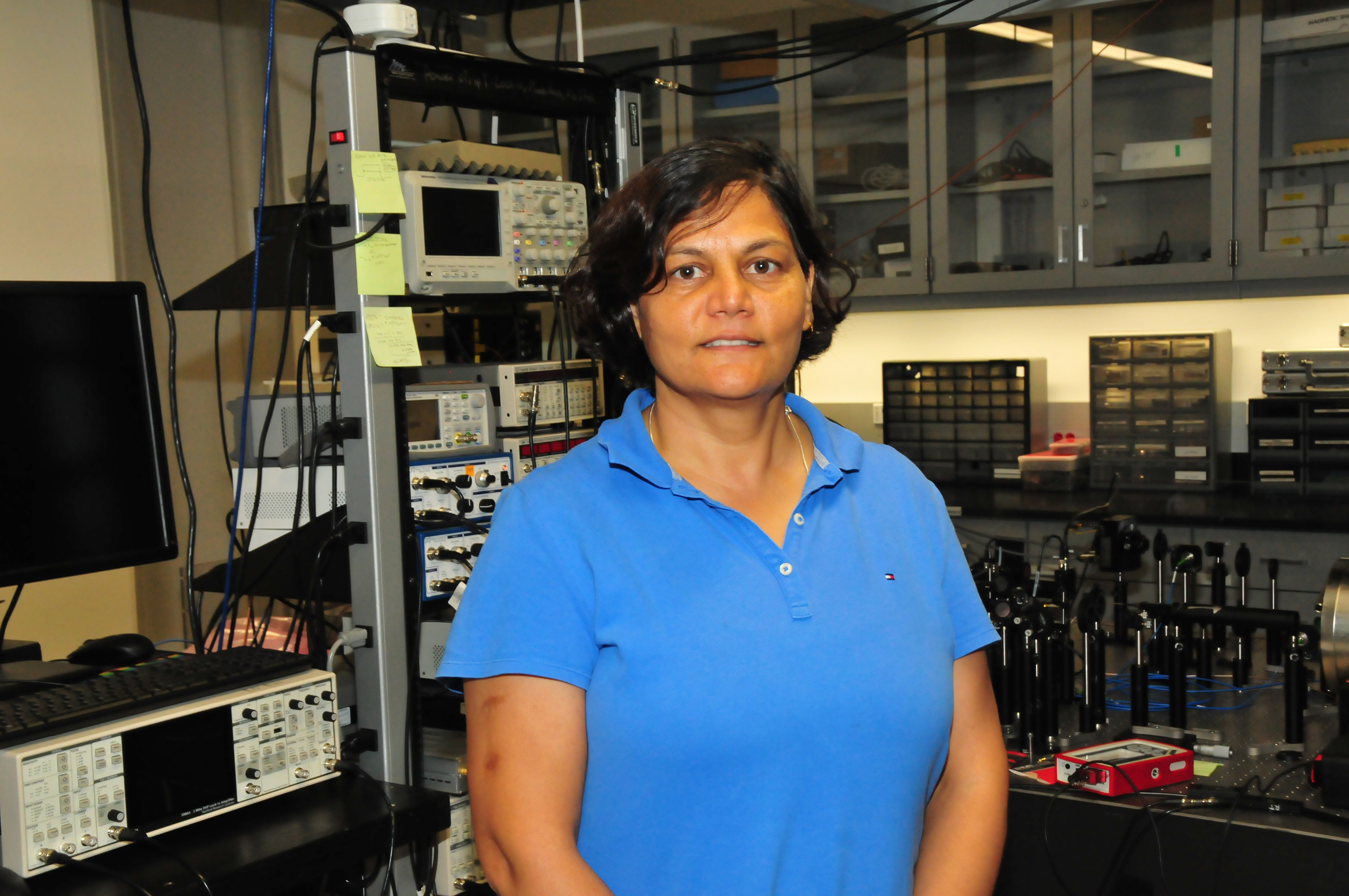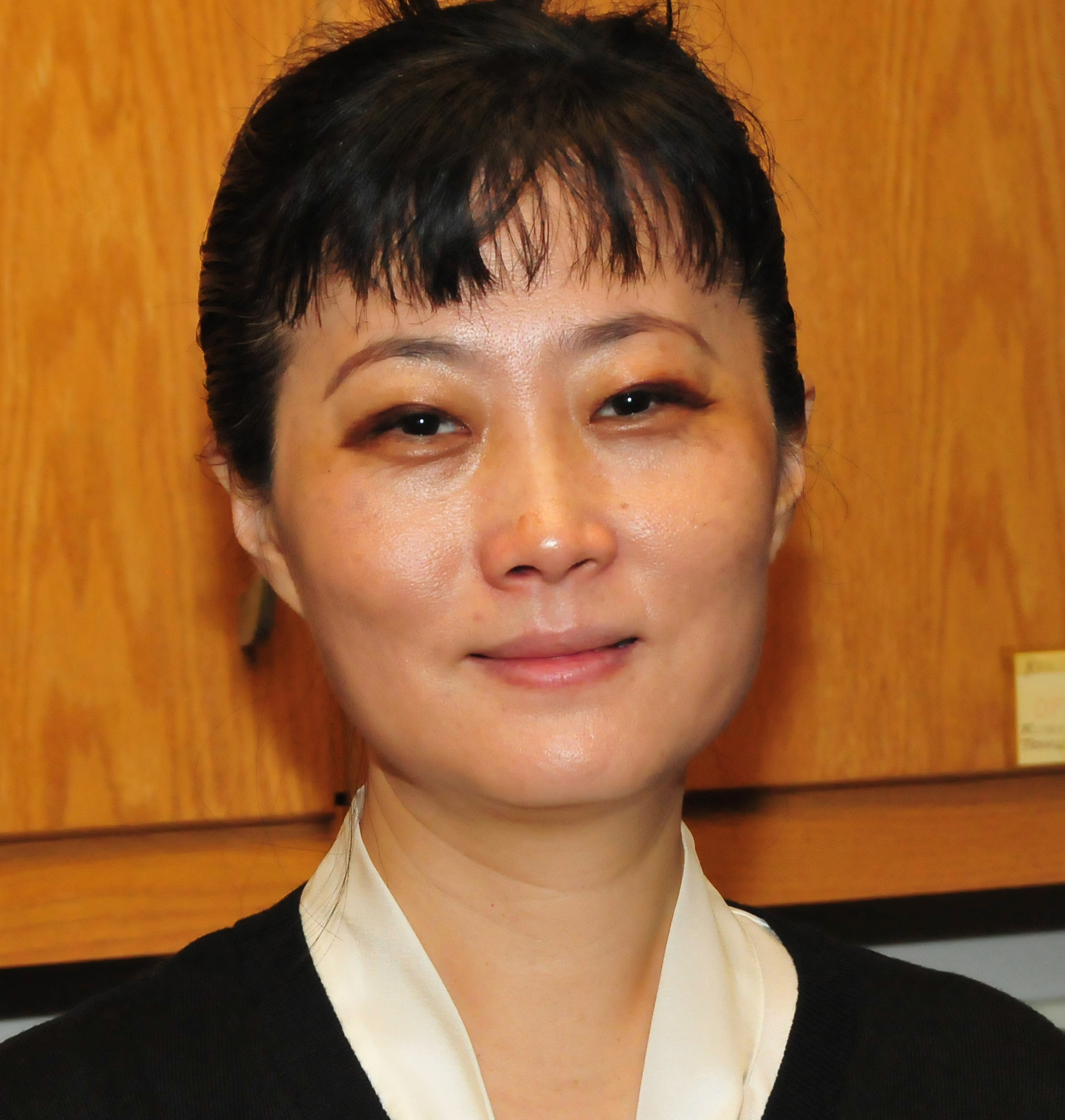
Three Optics Scientists Obtain Separate Research Grants
Three optics researchers at Delaware State University recently have earned individual grants in support of their projects.
Dr. Renu Tripathi, professor of physics and engineering, has been awarded a three-year $727,691 grant from NASA EPSCoR (National Aeronautics and Space Administration – Experimental Program to Stimulate Competitive Research). The funding will support her research that aims to develop a new laser-based remote magnetometer for measurement of the earth’s magnetic field at mesospheric altitude (the atmosphere 31 to 50 miles above the surface of the earth).
She, along with her co-principal investigator Dr. Gour Pati, will collaborate on field tests with a team from NASA’s Goddard Space Flight Center. If successfully developed, the technology could be used to develop future satellite mission concepts.
 Dr. Jun Ren, assistant professor of physics and engineering, has obtained a little more than $300,000 in combined grant awards to support her work to examine the feasibility of increasing the output energy in ultra-short laser pulses by over 100 times via the Stimulated Raman Backscattering technique.
Dr. Jun Ren, assistant professor of physics and engineering, has obtained a little more than $300,000 in combined grant awards to support her work to examine the feasibility of increasing the output energy in ultra-short laser pulses by over 100 times via the Stimulated Raman Backscattering technique.
If the project succeeds, it could transform ultra-high intensity lasers, which in turn would have great technological and scientific impact. The project will strengthen research capacity and provide educational opportunities to students in the area of plasma physics.
The grants include a three-year $286,821 from the National Science Foundation (NSF) Early-concepts Grants for Exploratory Research (EAGER) award, which supports exploratory work in its early stages on untested, but potentially transformative research ideas; a supplement NSF grant of $8,112; and an additional $13,000 from the U.S. Department of Education to cover travel and salary costs.
Dr. Mohammed Amir Khan, assistant professor of physics and engineering, has also obtained an NSF-EAGER $100,000 grant to support his work in developing technologies in air-quality monitoring for environmentally engaged and empowered communities.
The research focuses on the development and application of low-cost, portable air-quality sensors to measure gases and pollutants particularly in urban areas. Specifically, Dr. Khan’s research involves the design and development of novel laser-based photonic sensors and sensor networks to measure trace pollutants, particles and greenhouse gases for environmental sensing, global climate change, as well as industrial and biomedical applications.
The EAGER research aims to develop a citizen science program to study the impact of air pollution and offer a basic understanding of factors that influence local and regional air quality by the broad dissemination of sensor technology to local communities. Dr. Khan’s research team includes 10 undergraduate students, one graduate student, and two high school students from Dover and Polytech high schools who are involved in the training, design and development of various aspects of the project.
In total, this trio of optic researchers have secured grants totaling more than $1.1 million.

